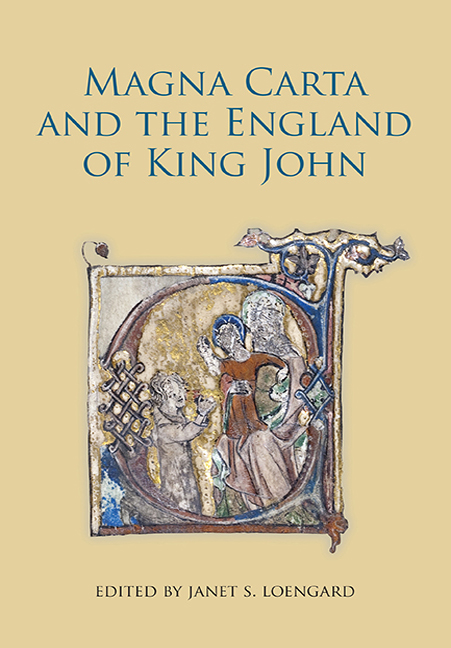Book contents
- Frontmatter
- Contents
- List of Contributors
- List of Abbreviations
- Introduction
- England in 1215: An Authoritarian Angevin Dynasty Facing Multiple Threats
- The Anonymous of Béthune, King John and Magna Carta
- Baronial Paranoia in King John's Reign
- The Forest Eyre in the Reign of King John
- The Managerial Revolution in the English Church
- Magna Carta, the ius commune, and English Common Law
- Justice without Judgment: Criminal Prosecution before Magna Carta
- What Did Magna Carta Mean to Widows?
- The English Economy in the Age of Magna Carta
- The Complaint of King John against William de Briouze (c. September 1210)
- Index
The Anonymous of Béthune, King John and Magna Carta
Published online by Cambridge University Press: 28 April 2017
- Frontmatter
- Contents
- List of Contributors
- List of Abbreviations
- Introduction
- England in 1215: An Authoritarian Angevin Dynasty Facing Multiple Threats
- The Anonymous of Béthune, King John and Magna Carta
- Baronial Paranoia in King John's Reign
- The Forest Eyre in the Reign of King John
- The Managerial Revolution in the English Church
- Magna Carta, the ius commune, and English Common Law
- Justice without Judgment: Criminal Prosecution before Magna Carta
- What Did Magna Carta Mean to Widows?
- The English Economy in the Age of Magna Carta
- The Complaint of King John against William de Briouze (c. September 1210)
- Index
Summary
One of the most frequently met generalizations about King John is that he was unfortunate to have lived at a time when those authors who chronicled the events of their own day were churchmen, and that in consequence, above all because of his quarrel with Pope Innocent III, he was doomed to be condemned. ‘Contemporary chroniclers who first sketched King John's character were subject to prejudices or preconceptions that distorted their perceptions. They were churchmen following criteria established by earlier clerical writers for evaluating medieval kings.’ Ralph Turner is in good Protestant company in expressing this view of ‘Papist’ chroniclers. Henry VIII's quarrel with the papacy led to a new and more positive perception of John as an illustrious predecessor of the Tudors. In John Bale's play Kynge Johan (c. 1540) Verity complains of the untruths told by historians. But with the emergence of the cult of Magna Carta in the seventeenth century, John's reputation sank again. For David Hume, John was ‘mean and odious, ruinous to himself and destructive to his people’. In the twentieth century the increasing preference of historians for judicial and financial records led to a tendency to rehabilitate John and a corresponding return to the Protestant view of medieval chroniclers. W. L. Warren, for example, began his lively and deservedly influential book with a chapter entitled ‘The genesis of a sinister reputation’ in which he analysed the differing ways in which chroniclers had treated John and his predecessors. He concluded that the two authors most responsible for ‘the terrible verdict’ on John were two monks of St Albans: Roger of Wendover and, a generation later, Matthew Paris. Admittedly not all chroniclers were monks, and some indeed were critical of the papacy, but since nearly all were ecclesiastics of one sort or another and wrote in Latin, it was easy enough to characterize them as authors who had little or no sympathy for secular values.
Some, however, wrote in French, the language of aristocratic society. Warren mentioned L'Histoire de Guillaume le Maréchal, claiming that it ‘assumes a unique importance because it sometimes, but all too rarely, takes us into John's presence’. Yet there is another work, probably written slightly earlier than the biography of the Marshal, also composed in French, and it too sometimes takes us into John's presence: the Histoire des ducs de Normandie et des rois d'Angleterre.
- Type
- Chapter
- Information
- Magna Carta and the England of King John , pp. 27 - 44Publisher: Boydell & BrewerPrint publication year: 2010



